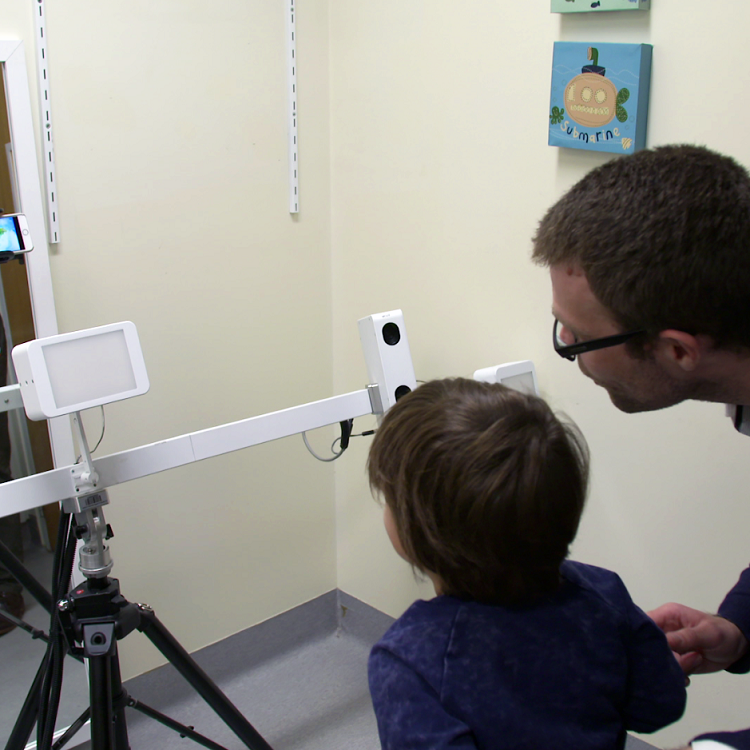Search

News & Events
The Kids Research Institute Australia researcher awarded prestigious Eureka awardProfessor Andrew Whitehouse awarded the most prestigious award in the country for young researchers – the 3M Eureka Prize for Emerging Leader in Science.

News & Events
Computer algorithm links facial masculinity to autismA new study led by The Kids Research Institute Australia has found a link between masculine facial features and autism.
Research
A randomised-controlled trial of a behavioural intervention for optimising social and communication development in newborns at increased likelihood of autism spectrum disordersAndrew Kandice Matt Melissa Videos Whitehouse Watch and listen to Andrew Varcin Cooper Licari PhD M.Psych (Clinical), PhD BCA Marketing, BSc
Research
Prevalence and risk factors for parent-reported recurrent otitis media during early childhoodThe objective was to describe the prevalence and risk factors of recurrent otitis media (rOM) in an urban Australian population at 3 years of age.
Research
No population bias to left-hemisphere language in 4-year-olds with language impairmentAn apparent paradox in the field of neuropsychology is that people with atypical cerebral lateralization do not appear to suffer any cognitive disadvantage,...
Research
The relationship between personality traits and psychotic like experiences in a large non-clinical adolescent sampleOur findings suggest that the chance of having psychotic like experiences is more likely for adolescents with certain personality traits.
Research
Diet in the early years of life influences cognitive outcomes at 10 years: A prospective cohort studyThe aim of this study was to investigate the association between diet during the first 3 years of life and cognitive outcomes at 10 years of age.
Research
The association between perinatal testosterone concentration and early vocabulary developmentPrenatal exposure to testosterone is known to affect fetal brain maturation and later neurocognitive function.
Research
Perinatal testosterone exposure and autistic-like traits in the general population: a longitudinal pregnancy-cohort studyIncreased prenatal testosterone exposure has been hypothesized as a mechanism underlying autism spectrum disorders (ASD).
Research
Maternal serum vitamin D levels during pregnancy and offspring neurocognitive developmentThe objective was to determine the association between maternal serum 25(OH)-vitamin D concentrations and behavioural, emotional and language outcomes...
